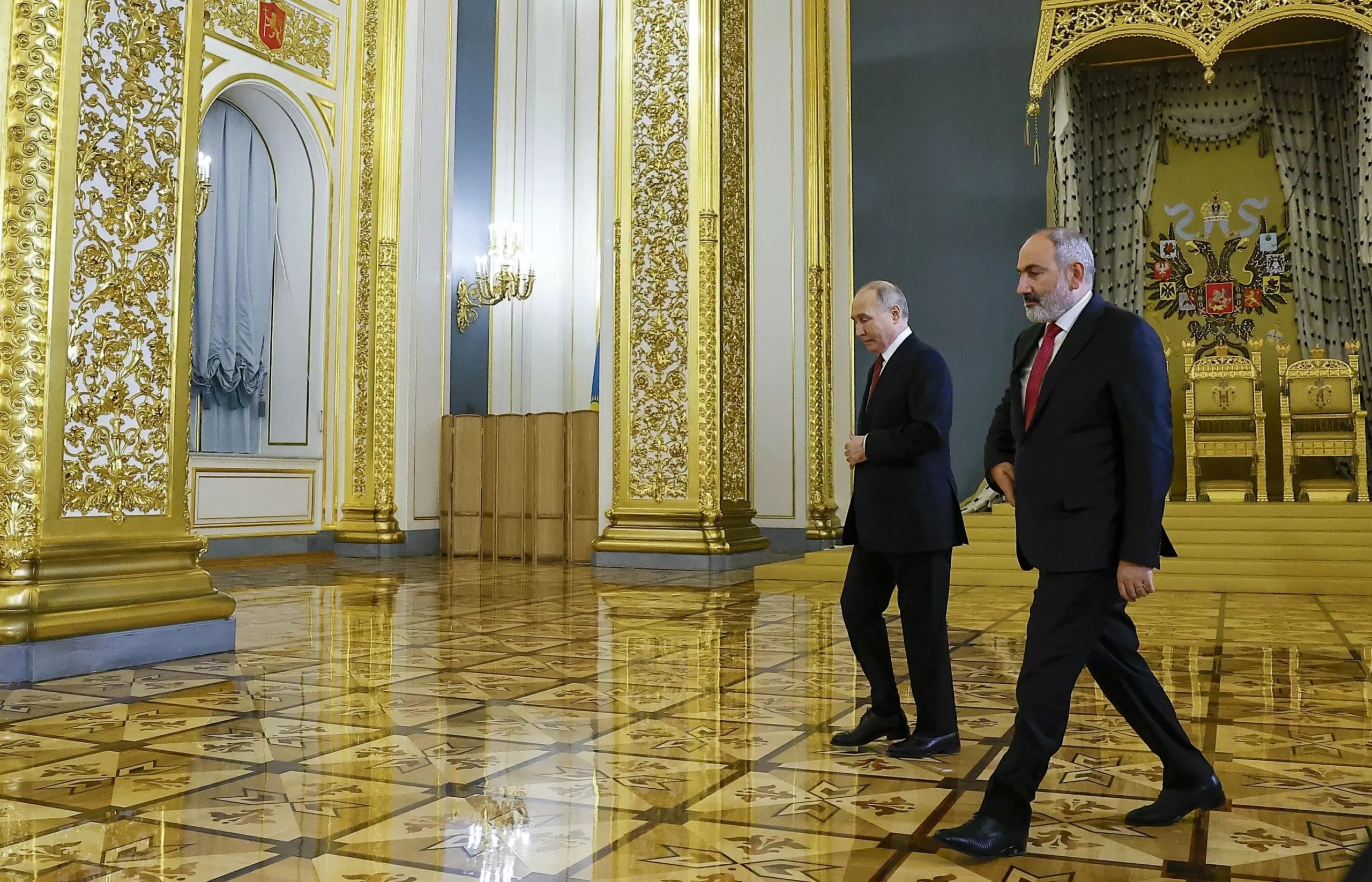Armenia’s Prime Minister, Nikol Pashinyan, made a bold statement on Wednesday, declaring that the Russian-led military bloc Collective Security Treaty Organization (CSTO) poses a threat to Armenia’s very existence. This statement has caused quite a stir in the political world, with many questioning the reasoning behind such a claim.
In his speech, Pashinyan expressed concerns over the CSTO’s ability to protect Armenia in the face of potential conflicts with neighboring countries. He stated that the organization’s structure and decision-making process do not align with Armenia’s national interests, and therefore, it cannot be relied upon for the country’s defense.
The CSTO, formed in 1992, is a military alliance between Russia, Armenia, Belarus, Kazakhstan, Kyrgyzstan, and Tajikistan. It was created as a response to the dissolution of the Soviet Union and to ensure the collective security of its member states. However, Pashinyan’s comments have shed light on the underlying tensions and issues within the organization.
One of the main concerns raised by Pashinyan is the fact that Russia holds the majority of decision-making power within the CSTO. This means that in the event of a conflict, Russia’s interests may take precedence over those of Armenia. This is a valid concern, especially considering the current political climate between Armenia and Russia.
In recent years, Armenia has been trying to distance itself from Russia and establish closer ties with the European Union. This has caused some strain in the relationship between the two countries, with Russia imposing economic sanctions on Armenia in response to its pro-EU stance. This has also led to Armenia’s decision to not participate in joint military exercises with Russia, further highlighting the growing rift between the two nations.
Furthermore, Pashinyan also pointed out that the CSTO’s structure does not allow for quick decision-making in times of crisis. This could prove to be detrimental for Armenia, as it shares a border with Azerbaijan, with whom it has a long-standing conflict over the Nagorno-Karabakh region. In the past, the CSTO has been criticized for its lack of action in the Nagorno-Karabakh conflict, leaving Armenia to fend for itself.
Pashinyan’s statement has sparked a debate within Armenia, with some supporting his stance and others criticizing it. Some argue that the CSTO is the only security guarantee for Armenia, and any withdrawal from the organization could leave the country vulnerable to external threats. However, others believe that Armenia needs to reassess its relationship with Russia and look for alternative security measures.
It is clear that Armenia’s concerns about the CSTO are not unfounded. The organization’s structure and decision-making process do raise questions about its effectiveness in ensuring the security of its member states. However, it is also important to note that the CSTO has played a crucial role in maintaining peace and stability in the region.
In light of Pashinyan’s statement, it is imperative for Armenia to carefully evaluate its relationship with the CSTO and work towards finding a solution that addresses its concerns. This could include pushing for reforms within the organization to ensure that all member states have an equal say in decision-making processes. It is also essential for Armenia to strengthen its ties with other countries and organizations to diversify its security options.
In conclusion, Prime Minister Nikol Pashinyan’s statement about the CSTO being a threat to Armenia’s existence has sparked a much-needed conversation about the organization’s effectiveness. While the concerns raised by Pashinyan are valid, it is crucial for Armenia to find a solution that addresses these concerns while also maintaining its security. Ultimately, the goal should be to create a secure and stable environment for Armenia and its people.





![Complete BritRail Pass Guide [Types, How to Use It, Pros + Cons]](https://inside-news.uk/wp-content/uploads/2025/06/00221EB4-BCA2-4DBB-6CD4-83DBC37D71FA-120x86.webp)












